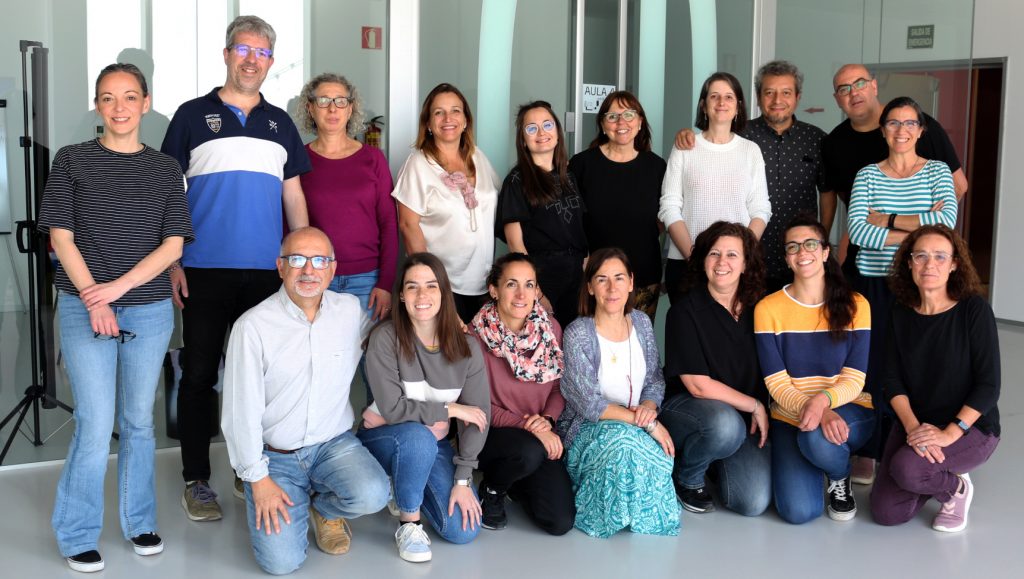
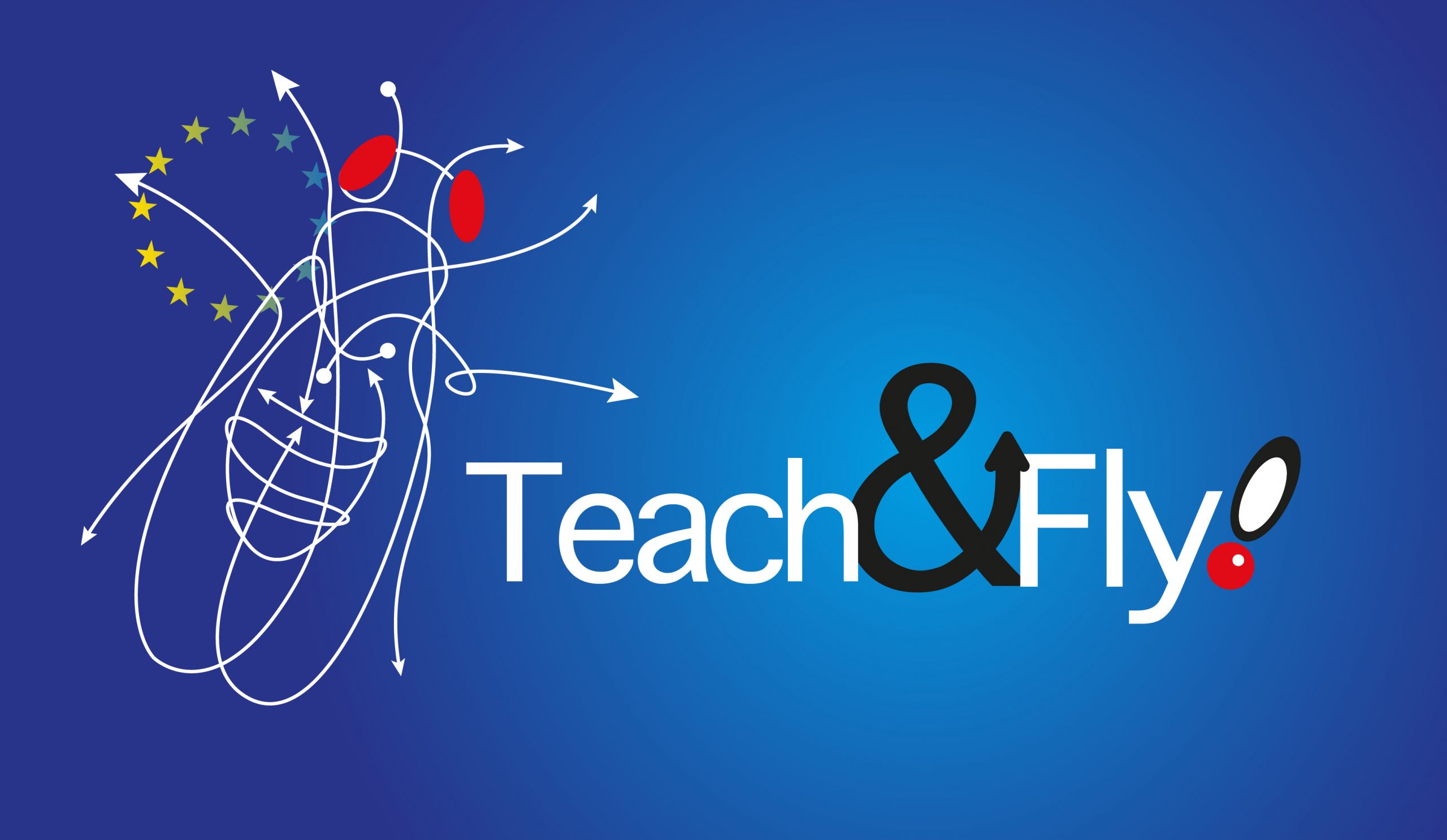 The Citizen Science Project on genomics of adaptation “Melanogaster Catch The Fly!” (MCTF), and the Center for Art and Technology “ETOPIA” are proud to announce the success of the new edition of the teacher training session “Teach and Fly”. The event was held on May 19 and 20, 2023, and was well attended by teachers and science enthusiasts.
The Citizen Science Project on genomics of adaptation “Melanogaster Catch The Fly!” (MCTF), and the Center for Art and Technology “ETOPIA” are proud to announce the success of the new edition of the teacher training session “Teach and Fly”. The event was held on May 19 and 20, 2023, and was well attended by teachers and science enthusiasts.
The training day was mainly aimed at ESO and high school science teachers who are already participating in the MCTF citizen science project, but it was also open to teachers from Zaragoza and its surroundings who were interested in involving their students in scientific research on international vanguard.
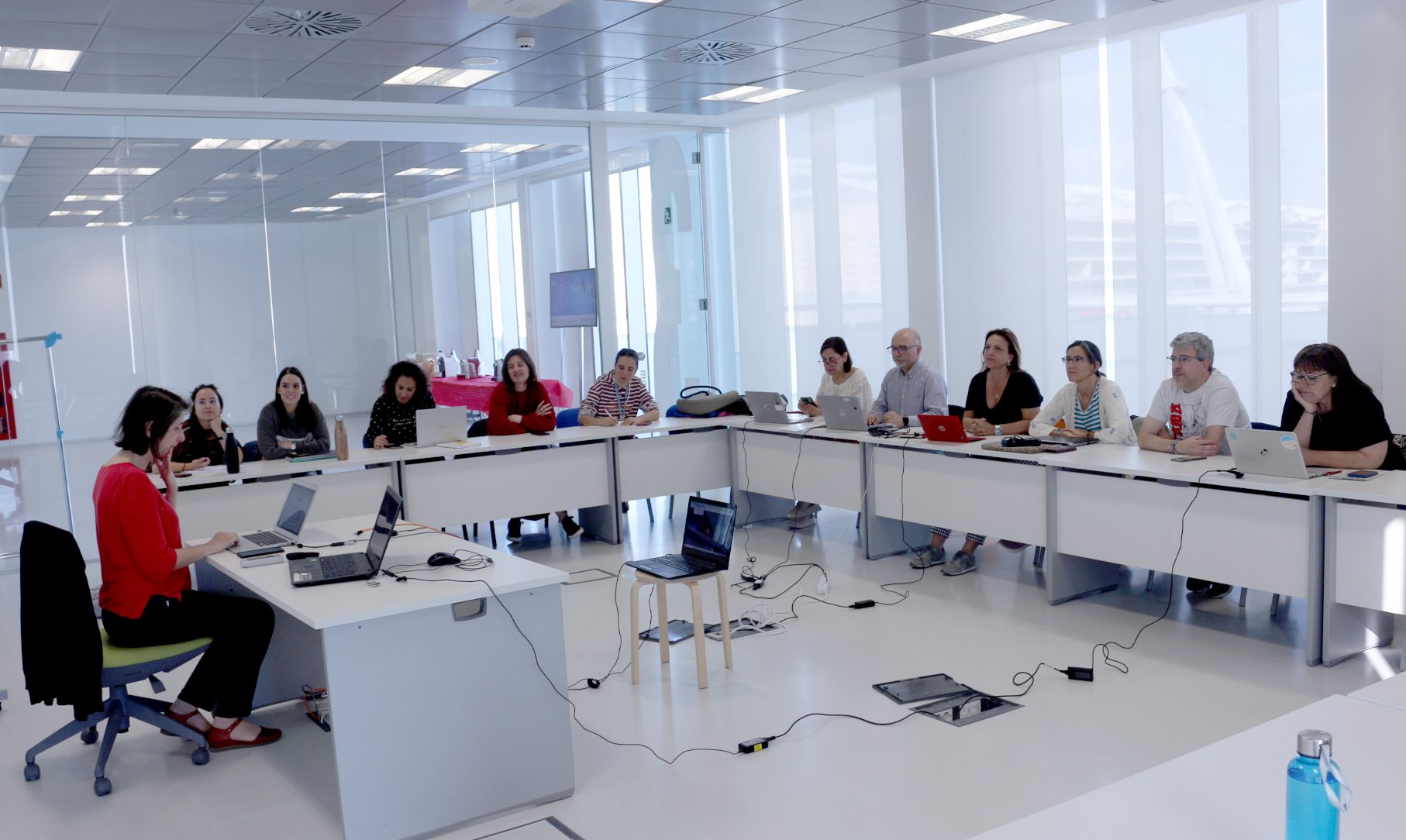
The day began with the presentation of the project and its objectives, activities and scientific and citizen impact. Next, the participating teachers attended the scientific conference entitled “Towards an understanding of the molecular mechanism of genotype-environment associations in response to climate change“, given by Dr. Josefa González, Principal Investigator of the Laboratory of Functional and Evolutionary Genomics (González Lab) of the Institute of Evolutionary Biology (CSIC-UPF), co-founder of DrosEU, and scientific director of the MCTF project. In this conference, Dr. González shared her knowledge and discoveries in the field of genomics and adaptation to the environment.
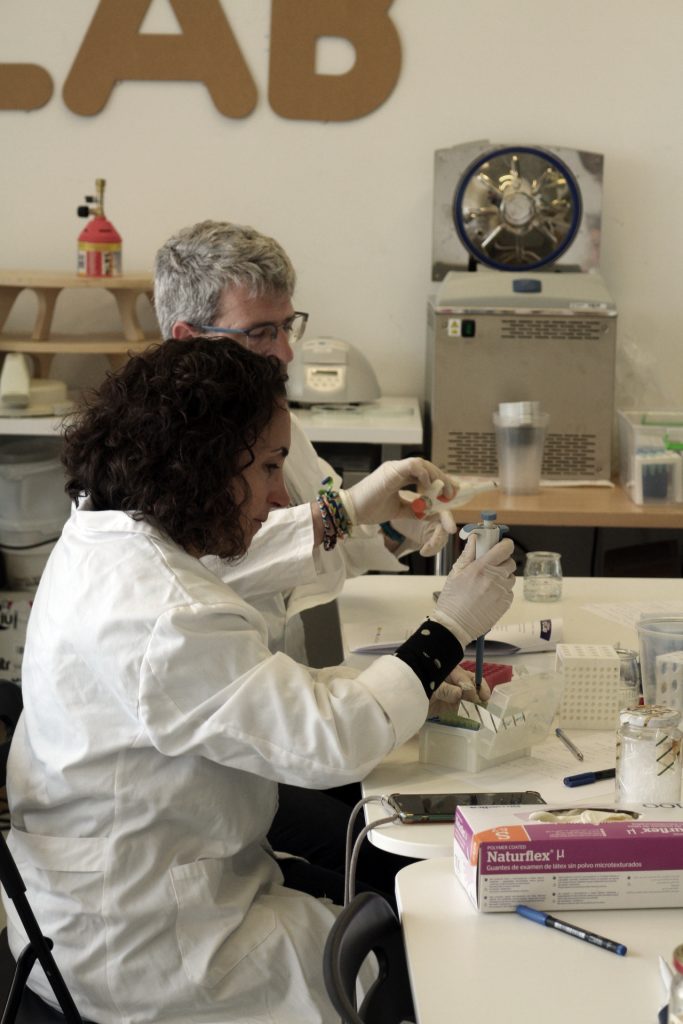
During the day, various activities and topics focused on training and updating knowledge for teachers were carried out. One of the highlights was the Citizen Fly Lab, led by Dr. Miriam Merenciano, post-doctoral researcher, Laboratoire de Biométrie et Biologie Évolutive (LBBE), Lyon, with the help of Dr. Aroa Ejarque Ortiz, Responsible for LIA Bio of LIA CESAR Unizar, ETOPIA Center of Art and Technology. The practice approached or updated the experimental work of a molecular biology laboratory to the teachers. The Citizen Fly Lab allows them to experimentally validate new mobile elements or transposons, based on Big Data generated by bioinformatics scientists, and to actively participate in the research project of the European Consortium for Drosophila Population Genomics (DrosEU). The opportunity to perform PCR reactions in the laboratory generated great interest and enthusiasm among the participants.
In addition, the prototype of the “Track the Fly“ weather station was presented and a workshop was held to identify possible technological improvements led by businessman José González, and Irene González, pre-doctoral researcher in the Retrovirology and Clinical Studies group. (GREC) of the IrsiCaixa AIDS Research Institute. Father and daughter fans of technological design and development in their free time, and responsible for the development of the “Track The Fly” station, and the “Magni Fly” device, also from MCTF and who have collaborated with MCTF since 2019. This workshop was oriented to technology teachers and people who are fond of design, technological development, 3D modeling, Arduino programming, mechanics and similar areas. The participation of girls was especially encouraged, with the aim of promoting STEAM disciplines. The workshop was followed by a presentation and practical workshop of the data management app and the weather station developed by scientists and citizens to carry out the “Track the Fly” activity, by Dr. Marta Coronado, Postdoctoral researcher at the Genomics Laboratory Functional and Evolutionary (González Lab) of the Institute of Evolutionary Biology (CSIC-UPF).
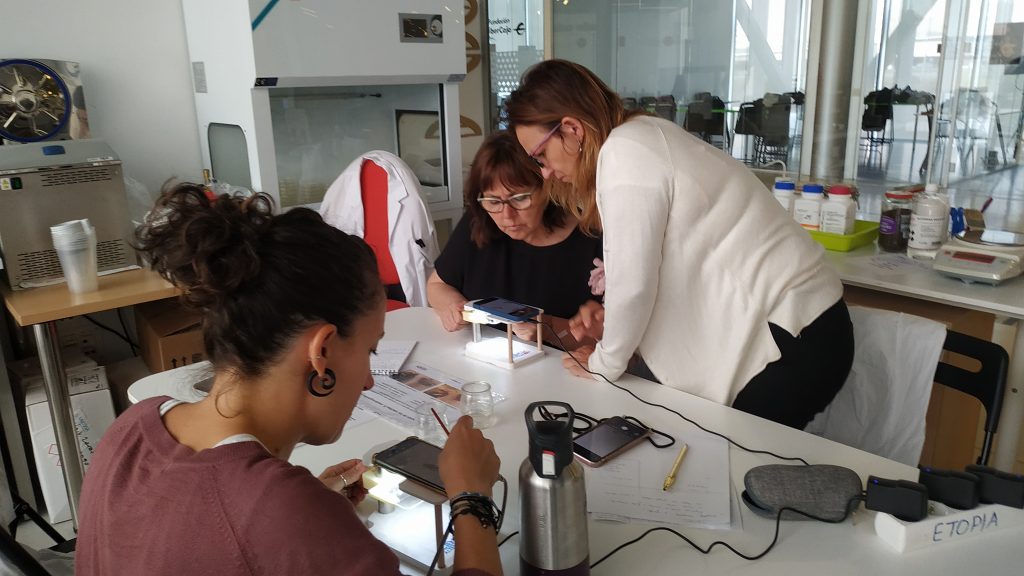
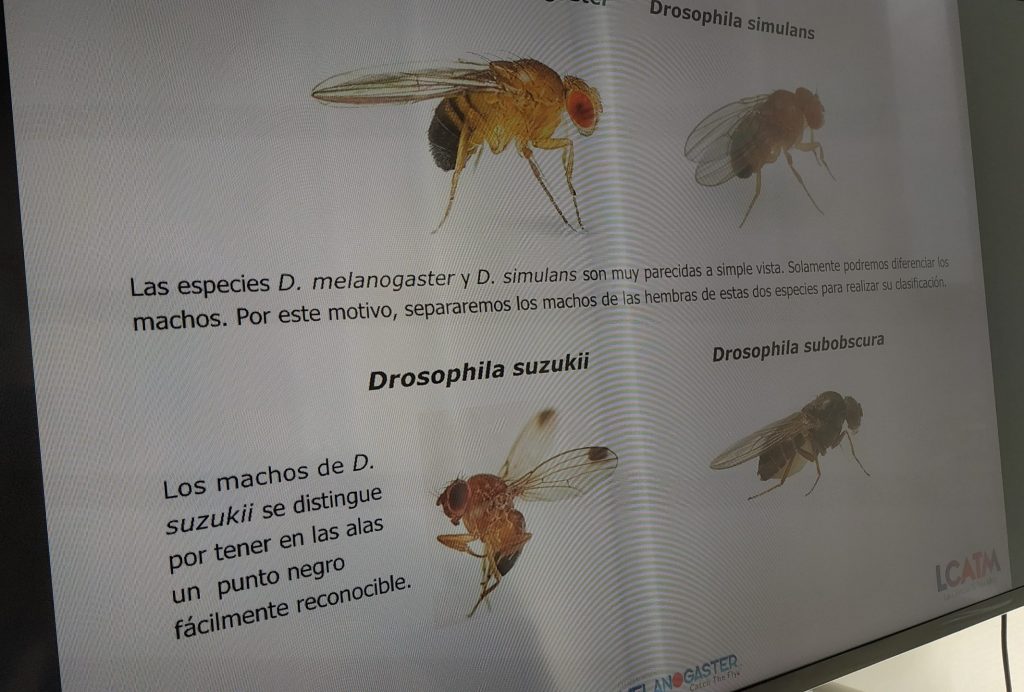
Another outstanding activity was the co-creation workshop to identify practices and natural events that could lead to changes in biodiversity or practices that could potentially affect it either negatively or positively. In this workshop, it is sought to take advantage of local popular knowledge and observation parameters based on said knowledge were established, with the aim of expanding the understanding of changes in biodiversity. The participants were encouraged to participate, and above all to involve their communities in the observation and validation of these events, which will enrich scientific research, generate new questions and potentially propose solutions in the short, medium and long term. The workshop was designed and directed by Roberto Torres, creative director of “La Ciència Al Teu Món” (LCATM), professional communicator and multimedia designer specialized in communication and scientific dissemination.

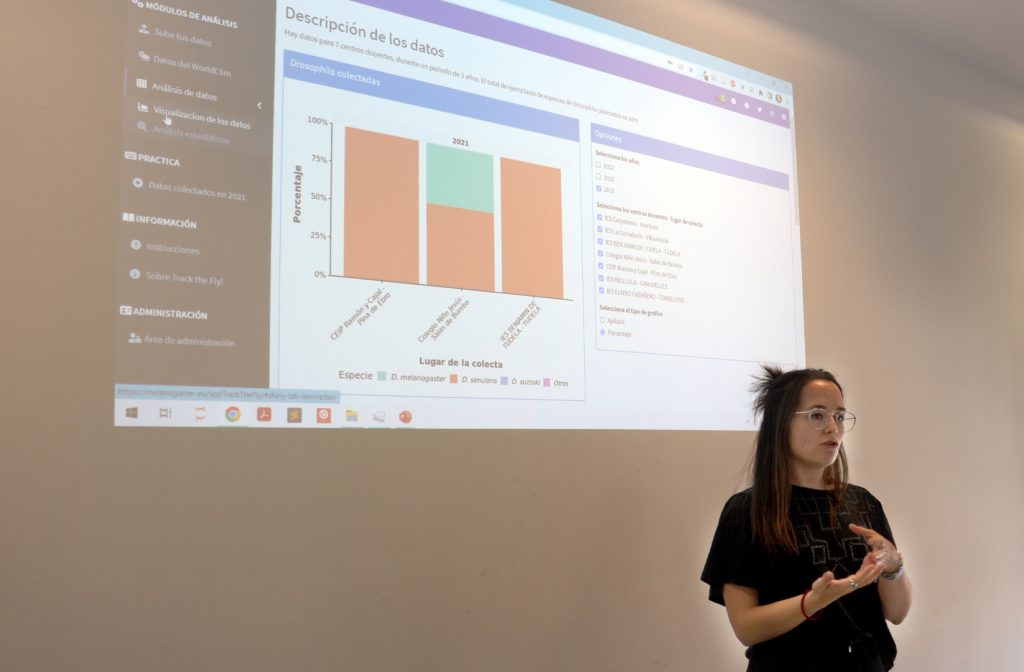
Roberto Torres also carried out a workshop to co-create the sustainability plan of the citizen science project. In this workshop, the teachers worked in the search for resources that would allow them to acquire the necessary resources and support to implement the project in their institutes. In addition, communication and dissemination strategies for the project were developed, as well as competitive fundraising techniques.
The MCTF citizen science project has achieved significant results thanks to the direct participation of teachers, students and inhabitants of rural regions in Spain, Europe and Colombia in Latin America. Funded by the European Research Council (ERC) and directed by Dr. Josefa González, Principal Investigator of the Functional and Evolutionary Genomics Laboratory (González Lab) of the Institute of Evolutionary Biology (CSIC-UPF), this project involves the participants mainly in the collection and classification of the study organism Drosophila melanogaster in its natural environment.
The participation of the institutes in the project has enabled the students to understand the scientific question addressed by the project and the importance of the research body. In addition, they have had the opportunity to contribute to the scientific objectives of the project by identifying the genes that allow the fruit fly to adapt to different environments.
The success of the “Teach and Fly” training day reinforces the MCTF project’s commitment to science education, citizen participation and the promotion of cutting-edge research in the classroom. The project team thanks all the participants for their enthusiasm and dedication, and looks forward to continuing to promote citizen science and science education at future events.
Photo Gallery:
«The citizen science project #MelanogasterCTF is organized by Laboratorio de Genómica Evolutiva y Funcional del CSIC, and the scientific dissemination platform La Ciència Al Teu Món (LCATM).
With the collaboration of the European Drosophila Population Genomics Consortium (DrosEU), and with the collaboration of the Spanish Foundation for Science and Technology – Ministry of Science and Innovation. (FECYT) and the European Research Council (ERC).»

